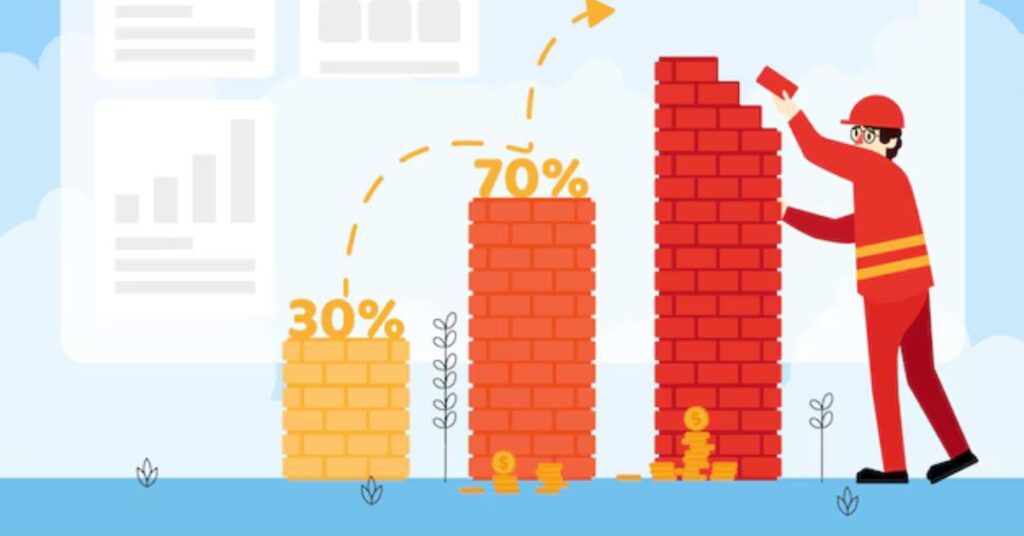Local businesses, particularly roofing companies, face increasing competition in the digital space. The phrase “roofing near me” has become one of the most competitive search terms, as customers often look for local services online. To ensure your business appears at the top of search engine results and captures valuable leads, using a rapid URL indexer in conjunction with local SEO strategies is essential. In this article, we will explore how to enhance your roofing near me rank with rapid url indexer with a rapid URL indexer, diving into key strategies, tools, and methods to stay ahead of the competition.
Understanding Local SEO and Its Importance for Roofing Businesses
What is Local SEO?
Local SEO (Search Engine Optimization) is the process of optimizing your website and online presence to rank higher in search results for geographically specific queries, such as “roofing near me rank with rapid url indexer.” It ensures that people in your target area can find your business when they search for relevant services.
For roofing companies, local SEO is critical because the majority of customers searching for roofing services are looking for local businesses roofing near me rank with rapid url indexer. Ranking higher in local search results increases the likelihood of attracting potential customers who are ready to hire a roofer.
The Importance of Ranking for “roofing near me rank with rapid url indexer”
The term “roofing near me rank with rapid url indexer” is a high-intent keyword that indicates a customer is ready to take action and hire a local roofer. Appearing in the top positions for this query can significantly increase your roofing business’s visibility and conversion rate.
Search engines like Google prioritize local businesses in these queries through tools like Google My Business (GMB), location-based keywords, and map packs. Ranking for “roofing near me rank with rapid url indexer” should be a top priority for any roofing company looking to grow their customer base and maintain a competitive edge.
Role of a Rapid URL Indexer in Boosting Roofing SEO
What is a Rapid URL Indexer?
A rapid URL indexer is a tool designed to accelerate the process of getting your web pages indexed by search engines like Google. Indexing is the process through which search engines add web pages to their database so they can be displayed in search results. Without indexing, even the best-optimized page will not appear in search engine results.
Using a rapid URL indexer ensures that your web pages, especially new or updated content, are quickly picked up by search engines. This is particularly important for roofing businesses trying to rank for high-competition local keywords like “roofing near me.”
How Does a Rapid URL Indexer Benefit Roofing Websites?
- Faster Visibility: A rapid URL indexer speeds up the process of getting your content indexed by Google, which means your roofing website can start ranking sooner.
- Increased Traffic: By getting indexed faster, your pages will appear in search results more quickly, driving traffic to your site and helping generate leads.
- Improved Rankings: Regularly using a rapid URL indexer can keep your website’s fresh content indexed and ranking, maintaining your visibility in local search queries.
Key SEO Strategies for Roofing Websites
1. Keyword Research for Roofing
Keyword research is the foundation of any successful SEO strategy. For roofing businesses, it’s essential to identify high-intent keywords that potential customers are using, such as:
- Roofing near me
- Best roofing companies
- Local roofing contractors
- Roof repair services
Use tools like Google Keyword Planner, Ahrefs, or SEMrush to find variations of these keywords and incorporate them naturally into your website content.
2. On-Page Optimization
Once you’ve identified the right keywords, you need to optimize your web pages for them. Key elements of on-page optimization include:
- Title Tags and Meta Descriptions: Ensure your title tags and meta descriptions include relevant keywords such as “roofing near me rank with rapid url indexer.”
- Header Tags: Use H1, H2, and H3 tags to structure your content, and include your target keywords in these headers.
- Alt Text for Images: Optimize images by using relevant keywords in their alt text.
- Internal Linking: Connect your web pages through internal links to guide visitors and search engines to important sections of your website.
3. Creating SEO-Friendly Content
Content is king when it comes to SEO. For roofing websites, creating high-quality, SEO-optimized content can make all the difference. Some content ideas include:
- Service Pages: Dedicated pages for each of your roofing services, such as roof repair, installation, and maintenance, optimized for location-based keywords.
- Blog Posts: Regularly updated blog posts about roofing tips, seasonal maintenance advice, and industry trends to engage users and keep your site fresh.
- Location-Specific Content: Create content that highlights your services in specific locations to attract local traffic.
4. Using Location-Based Keywords Effectively
Location-based keywords are essential for local SEO. Make sure you include your city, town, or service area in your website content. For example:
- “Roofing services in [City]”
- “Roof repair near me”
- “Roofing contractors serving [Area]”
5. Off-Page SEO and Local Citations
Off-page SEO refers to actions taken outside your website to improve your search rankings, including:
- Backlinks: Getting high-quality backlinks from reputable websites can boost your authority in search engines.
- Local Citations: Ensure your business information (name, address, phone number) is consistent across all local directories like Yelp, Angie’s List, and Yellow Pages.
- Reviews: Encourage satisfied customers to leave positive reviews on Google and other review platforms, as this helps boost your credibility and local ranking.
6. Mobile Optimization
More than half of all local searches are conducted on mobile devices, making mobile optimization critical for roofing businesses. Ensure your website is mobile-friendly by:
- Implementing responsive design
- Optimizing page load speed
- Simplifying navigation for mobile users
Combining Google My Business with Local SEO
Google My Business (GMB) is an essential tool for improving your roofing business’s local SEO. Here’s how to optimize it:
- Complete Your Profile: Ensure all business information, including name, address, phone number, and operating hours, is accurate and up-to-date.
- Add Photos: Include high-quality photos of your roofing projects and team to give potential customers a sense of your work.
- Collect Reviews: Respond to reviews, both positive and negative, to show customers that you value their feedback.
- Post Regularly: Use GMB posts to share updates, promotions, or recent projects.
Conclusion
Optimizing your roofing website for “roofing near me rank with rapid url indexer” and using a rapid URL indexer are powerful strategies for capturing local leads and staying ahead of the competition. By implementing the right mix of keyword research, on-page optimization, mobile-friendly design, and local SEO strategies, your roofing business can dominate the local search results and attract new customers. Don’t forget to leverage tools like Google My Business and encourage customer reviews to further boost your visibility.
FAQs
1. What is a rapid URL indexer, and how does it help my roofing business?
A rapid URL indexer is a tool that speeds up the process of getting your web pages indexed by search engines like Google. It helps roofing businesses by ensuring their web pages get indexed faster, improving visibility in local search results for terms like “roofing near me.”
2. How can I improve my rankings for “roofing near me”?
To improve your rankings, focus on local SEO strategies such as keyword research, on-page optimization, creating location-based content, optimizing your Google My Business profile, and gathering customer reviews.
3. Why is local SEO important for roofing companies?
Local SEO is crucial for roofing companies because the majority of customers looking for roofing services will perform geographically targeted searches. Ranking high in local search results helps attract more leads and potential customers.
4. Can I use multiple location-based keywords on my website?
Yes, using multiple location-based keywords (e.g., “roofing services in [City]”) throughout your website can improve your local SEO and help you rank for different areas where you provide services.
5. How does mobile optimization affect my local SEO rankings?
Mobile optimization is essential for local SEO since many local searches are done on mobile devices. Ensuring your website is mobile-friendly can improve your rankings and provide a better user experience for potential customers.







